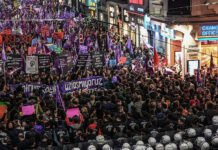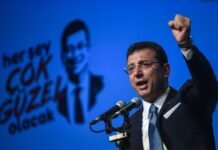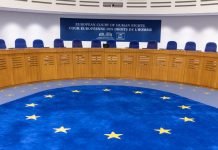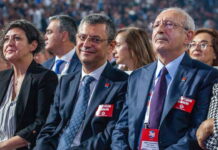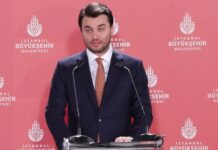A letter recently sent by the Turkish Permanent Mission to the UN Office in Geneva to the Office of the UN High Commissioner for Human Rights (OHCHR) states that Turkey will not provide further information to the UN on the case of Osman Kavala, a prominent businessman and philanthropist who has been jailed since October 18, 2017.
In its diplomatic letter, dated November 10, the Turkish government accused Mary Lawlor, UN special rapporteur on the situation of human rights defenders, of “[resorting] to … a hasty press release,” displaying “a prejudging attitude on the issue without hearing the observations of the [Turkish] Government” and reaching “a unilateral conclusion.”
“For these reasons, the [Turkish] Government has decided to refrain from providing further information on the communication AL TUR 8/2022,” the letter said.
In September four UN special rapporteurs sent a joint letter (Ref. AL TUR 8/2022) to the Turkish government and expressed their concern regarding the apparent denial of justice for Kavala. The UN officials urged Turkey to respect the decision and legitimacy of the European Court of Human Rights (ECtHR) and requested information on the factual and legal basis of the charges and conviction of Kavala.
The UN letter was signed by Lawlor, Vice Chair of the Working Group on Arbitrary Detention Mumba Malila, Special Rapporteur on the promotion and protection of the right to freedom of opinion and expression Irene Khan and Special Rapporteur on the rights to freedom of peaceful assembly and of association Clement Nyaletsossi Voule.
Turkey has refused to release Kavala despite a 2019 ECtHR ruling that found his detention was in pursuance of an “ulterior motive,” that of silencing him as a human rights defender. The non-implementation of the ruling prompted the Council of Europe’s (CoE) Committee of Ministers to launch an infringement procedure against Turkey in February, which is still ongoing.
Kavala earlier said in a written interview he gave through his lawyers with the pro-opposition Halk TV that his detention was unlawful and that the Turkish government was still holding him in prison to lend credibility to the Gezi Park case.
Kavala pointed out that his detention violates Article 18 of the European Convention on Human Rights, which concerns limitation on the use of restrictions on rights, although dozens of international organizations and political figures have publicly called for his release. He stated that the aim of his imprisonment is to send a deterrent message to those who have participated in mass protests against the government by sentencing people like him to harsh punishment.
Kavala, who had been behind bars since October 18, 2017, was acquitted in February 2020 of charges of attempting to overthrow the government through involvement in the 2013 Gezi Park protests.
Kavala was rearrested the same day of his release on charges related to a 2016 abortive putsch in Turkey in a move described by his lawyers as a tactic to circumvent the court’s 2019 ruling to free him.
An İstanbul court on April 25 sentenced Kavala to aggravated life and his co-defendants to 18 years each on charges of financing the anti-government Gezi Park protests, sparking criticism from international community.


